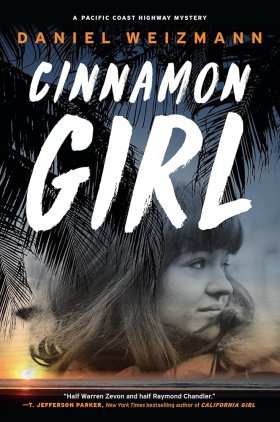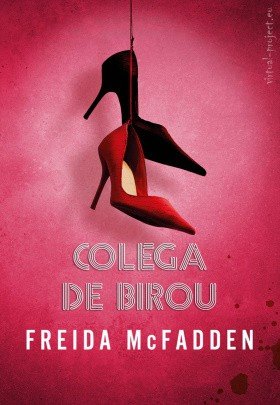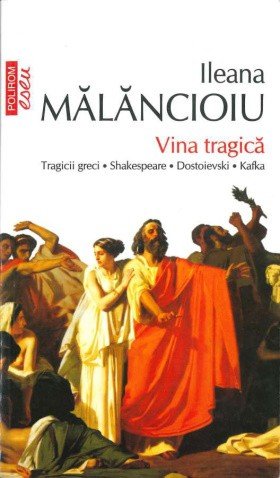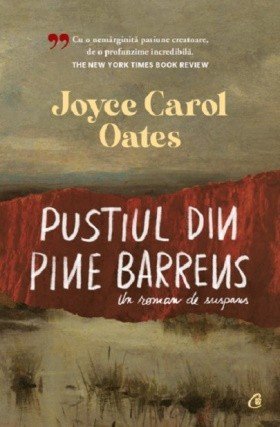“That’s our prom picture,” she said with a trace of sadness. “As you can see, we’d already gotten the bug.”
In the gold-framed photo, Marie was wearing a fancy white wedding dress that had been hemmed into a tight miniskirt, showing off her sexy, plump curves. Her heavy Egyptian eye makeup was right out of Swingin’ Roma, Fellini a-go-go. Lazer was skinny then, without a whisker on his chin, cocky in a satin top hat, white tie, and corny velvet tails, with a bright multicolored scarf for a belt. Together, they looked sassy, sophisticated, maybe too sophisticated for high school kids.
I sat back down, checked my watch—2:25. In a few hours I’d be meeting Devon Hawley—the keyboardist.
Finally, Lazerbeam came back, jolly, bedraggled, cigarette butt dangling from his lip, with an armful of old poster boards and a big stack of flyers and some xeroxed and stapled fanzines and a VHS box. Smoke was pouring off his curly gray head as he spread his finds all out across the coffee table, hacking and winded. He dropped the butt into a blue water glass and it fizzed out in an instant.
“I found it,” he said, singsongy.
“Found what?” his wife said, standing in the bedroom doorway.
“Some won-derful stuff!” It was hard to believe this bearded old man and his torqued posture was the kid in the prom shot, but the enthusiasm was the same. He reached for the VHS and held it like a trophy. “Right here—the Seeds on Shebang! And I was there, man, eight years old!”
“Oh Jesus, Larry, he doesn’t need to see that.”
“Now hold on a minute, woman,” he said—his first act of open defiance. “I’m trying to give this guy context. Daily Telegraph covered ‘A Thousand Shadows’ by the Seeds—why? ’Cause I suggested it. And you know why I suggested it? ’Cause I saw the original taping when they premiered it on Shebang, 1967. My daddy booked every dancer on that show!”
“For fuck’s sake, Larry, the VHS player doesn’t even work.”
“The hell it doesn’t.” He dropped to his knees and crawled behind the TV, started wrangling with cords. “Incredible clip! You do need to see this.”
As he fiddled, I said, “What is it I’m going to see exactly?”
“Maybe the greatest moment in all of human history. It was like American Bandstand, only insteada Dick Clark, the host was Casey Kasem. I turned the ’Graph onto this track, man!”
His wife groaned. “You should probably get a Nobel Prize for that.”
He ignored her, scrambled for the black slab of plastic and clutched it like a prayer book. “Fasten your seatbelts, my dearies.”
I said, “Don’t undersell it,” and Marie gave a snort.
He said, “Douse the Edisons, babe.”
Marie reluctantly drew the little yellow window curtains and turned off the lamp on the couch-side table. All I could see was the foothill of his crooked back now as he slid the VHS in. He mumbled, “Machine better not eat my tape.” Then he stood and thumbed at two remotes like a gunslinger.
With a click, the widescreen went navy blue. Primitive digital titles appeared:
SHEBANG! dancers / Seeds “A Thousand Shadows” U.S.
CBS-TV NETWORK, May 11, 1967.
Straight to Kasem, bearded, talking to a group of teenagers. “…new record is called ‘A Thousand Shadows’ and it’s done by the Seeds.”
Music: a hammy church organ and a whispering melodramatic singer—“I did it all for her, my flower child…” And then:
Lost in your dreams!
Said the ride’s so long and the night’s so black
A thousand shadows can never look back
As the song kicked in, the dancers boogied in couples around a set that was really nothing, but it was a futuristic nothing: long rows of blinking multicolored orbs and a staggered stage designed to look like the rec room on the Starship Enterprise. The screen zoomed into a primitive double-exposure showing, at the same time, a smallish crowd of teenybopper dancers, and superimposed before them, one highlighted couple, strictly from Squaresville. The boy was a long and lean varsity type in a suit with a blond comb-over and the girl was cheery, straight-blonde, miniskirted, with a big, embarrassed smile. Their left hands were joined, like fox-trotters fallen from an earlier era. In fact, most of the high school–age crowd behind them looked square, suited, restrained. Hair was long in front but not long-long; dance moves were more enthusiastic than erotic. This wasn’t the nudies having a freakout at Woodstock a few years later. These were “the good kids”—could’ve been a Catholic school cotillion.
Three minutes—it zoomed by, but I was getting restless with the history lesson.
“Kind of like something out of a Tarantino flick,” I said.
“Yeah, but this was real,” Lazerbeam said, with a little too much rancor. “Maybe we better watch one more time, so you can really understand what the ’Graph was trying to be.”
I nodded—what choice did I have? I was being held hostage in the land of footage. We watched again, three modern people in the dark, staring at the past. But the punch line was, the future, which we were now in, somehow hadn’t really managed to supplant the past at all.
Which used to be the future’s main job.
“If I put this baby up on YouTube,” Lazerbeam said, “I’ll prolly get a hundred and fifty thousand views and a shitload of likes.”
“If you put this up on YouTube,” his wife countered, “you’ll get sued. Oh, and you’ll get one comment—This sounds way too much like that other song of theirs. Signed, oldiesgeek number four thousand!”
“That’s what you think,” he said, but he was half-laughing with her. “The sixties are like Dracula—they just keep comin’ back! Slap on the hashtags and voila, fifty million watchers, enthralled.”
I said, “That’s roughly 49.9 million times the original audience.”
He silenced me. “Watch the magic!”
I turned back to the screen. The dancers danced. The music swirled. The past was all up in our grill, grabbing us by the eyeballs. Lazerbeam considered the angular couple grooving on the screen as if grading his father’s work. “Nice-looking girl. Pretty sure we tried to hire her for a permanent but she never came back. She wasn’t a great mover—but you want a mix of normal kids and lookers and whatnot. That’s what a dance show is, man. It’s a show saying, Hey, normal kid, you are us and this is you. You see…what guys your age maybe don’t get is…back then, life itself was…a different kind of contest.”
“It was?”
“That’s right. Who’s the freest.”

























